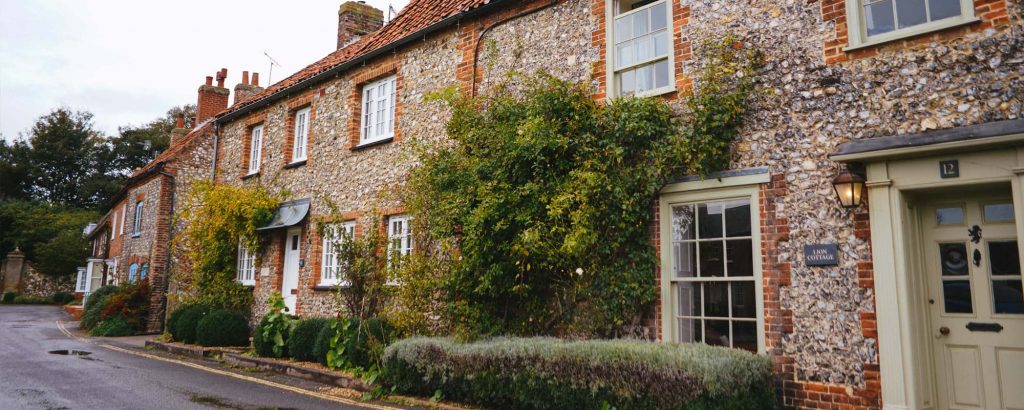
You may not have given much thought to the difference between freehold and leasehold when looking at properties to buy. However, it’s important to understand the distinction. It can not only affect how you buy a property but also your ownership of it and, further down the line, the sale of your property.
What is freehold?
When you buy a freehold property, you own both the building and the land it is on outright. You are responsible for maintaining them and paying the costs to do so. You, as the freeholder, own the ‘title absolute’ and don’t have to pay any service charges or ground rent. Most houses are sold as freehold but this isn’t always the case so it’s important to check.
What is leasehold?
With a leasehold property, you own it for a set number of years as detailed in the lease. This isn’t necessarily an issue as most leases have a long term, such as 90 or 120 years. Some leases even run to 999 years. However, some leases can be much shorter, such as 50 years, and this can cause you problems. For a start, if the lease expires, ownership of your property transfers back to the freeholder. This is regardless of how much you paid for it. A way to ensure this doesn’t happen is to extend your lease, which we’ll detail below.
Short leases also drastically reduce the value of properties. A property with only 40 years left on the lease will be worth a lot less than the same property with a lease of 100 years. You’ll find it hard to sell your property in the future with a short lease. Many lenders won’t approve a mortgage to buy a leasehold property unless the lease has at least 80 years to go.
Ground rent and service charges
As a leaseholder, you enter into an agreement with the freeholder who owns the land your property has been built on as well as the rest of the building in the case of flats and maisonettes. As the freeholder is effectively your landlord, you have to pay ground rent each year. The freeholder is responsible for maintaining the building’s common areas, such as stairways, the roof and communal gardens. You have to pay a service charge to your freeholder or the managing agent each year to contribute towards these costs. This charge may also include your contribution towards the buildings insurance.
It’s essential to check the details for these costs, such as the current amounts, whether they’re fixed or variable, whether the freeholder intends to increase them and, if so, by how much. Before proceeding with your purchase, it’s also essential to check whether the freeholder has plans to carry out any major works in the future and that the previous property owners paid the service charges up to date.
Restrictions
Even though you own the property, it can be restricting as you have to abide by the conditions set by the freeholder. If you want to carry out major works on your leasehold property in Bexleyheath, Kent, for example, you have to get permission from your freeholder. You may also be unable to do certain things, such as have pets in the property, sub-let or run your business from home.
Extending your lease
It’s vital to check the length of the lease before you buy a property. Also bear in mind its length when you’re ready to resell in the future. When you’re interested in a property in Pimlico, London, that has a short lease, ask the seller to extend it before you buy the property. Another option is to proceed with the purchase and then ask the freeholder to extend the lease. They’re not obligated to do this. However, once you’ve held the lease for 2 years, you are entitled to extend your lease provided the original lease was long enough. This is usually classed as being over 21 years.
Extending your lease can be very costly. The rules involved vary depending on whether you own a house or flat. With a house, you can normally extend your lease by 50 years and the lease terms can be renegotiated, such as who is responsible for works carried out on the property. You don’t need to pay a premium to do this but your ground rent may go up. With a flat, you can normally extend your lease by 90 years. The lease terms can be renegotiated and you won’t need to pay ground rent. You’ll have to pay a premium for the lease extension, though. The government intends to make it cheaper and easier for leases to be extended. There is no date as yet, however, for the proposals to come into effect.
Costs to extend your lease
The shorter the lease, the more expensive it is to renew, becoming very expensive when it nears 80 years. Once it reaches 80 years, the cost of extending the lease rockets. As the process to extend a lease can take some time, it’s important to act on this as quickly as possible rather than leave it to the last minute.
If you wish to extend a lease that has dropped below 80 years, you may also be liable for the payment of 50% of the property’s marriage value. Marriage value is the extra value gained by your property with an extended lease.
Other costs to bear in mind include your solicitor’s fees, a valuation fee and possibly some of the freeholder’s costs, such as their legal fees.
Leasehold properties in Scotland
Leasehold properties aren’t as common in Scotland. When buying a flat in Edinburgh, you usually own your property’s freehold. A company known as a factor is responsible for the upkeep of the common areas. You pay the equivalent of service charges to this company, which are called factoring charges.
Can it be beneficial to own a leasehold property?
Owning a leasehold property isn’t always seen as a negative. A long lease of 999 years is on a par with having a freehold. You also don’t have to worry about dealing with the upkeep of the common areas. As well as that, if you’re experiencing any issues, such as problems with noisy neighbours, the freeholder should deal with this. The freeholder also normally arranges the buildings insurance and you just contribute towards it via the service charge.

